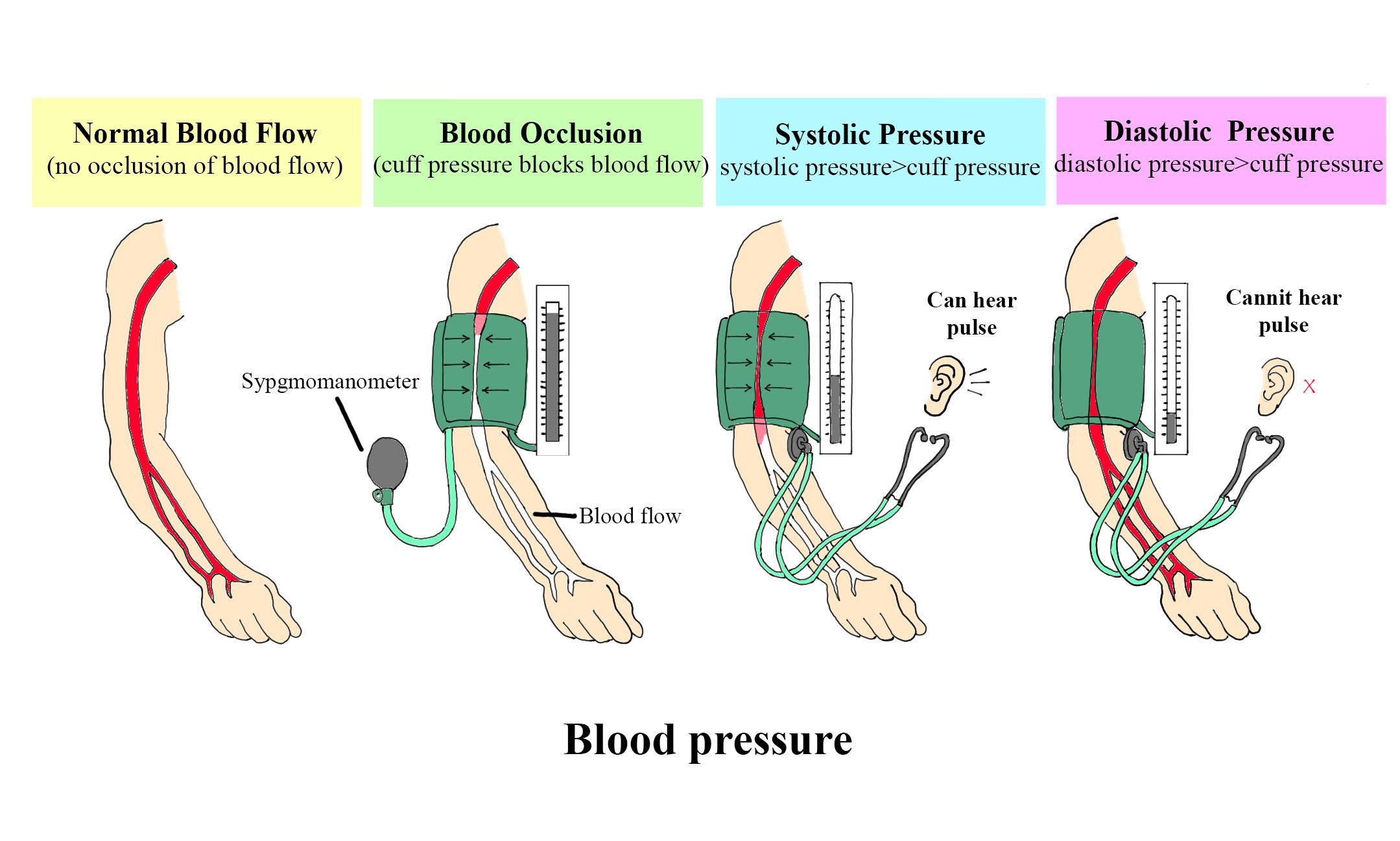
What is blood pressure? Name the instrument used to measure it.
Answer
577.8k+ views
Hint: Blood is supplied to different parts of our body by our hearts. The heart pumps blood into the arteries and other blood vessels which creates tension in the walls of the blood vessels.
Complete answer:
As you know the heart is involved in the pumping of blood to all the parts of our body. The blood which is pumped out of the heart goes into the blood vessels. The force with which the heart pumps blood into the blood vessels creates tension in the walls of the vessels which is called the blood pressure. To measure the blood pressure a device called the sphygmomanometer is used. This device contains mercury which raises when the blood pressure increases. Blood pressure reading fluctuates readily, as a lot of factors are there which affects the blood pressure reading. Hence to obtain correct reading the blood pressure must be checked more than once.
Additional Information: -There are two types of blood pressure, one is Systolic pressure and the other is the diastolic pressure.
-The systolic pressure Is the measure while the heart muscle contracts to pump blood full of oxygen to different parts of the body through the blood vessels.
-The diastolic blood pressure is given as the heart steps into the relaxation phase after it is contracted fully to expel all the blood out into the blood vessels.
-The unit of measurement of blood pressure is a millimeter of mercury that is mmHg. The blood pressure reading obtained as two reading at a time, viz. the systolic and the diastolic pressure.
-The normal measurement of the systolic pressure is 120 to 130 mmHg and the diastolic blood pressure is in the range of 80 to 88 mmHg, although the reading may vary depending upon the condition of the person, whose pressure is being measured.

Note: -You must note that high blood pressure may have symptoms that include dizziness and a hazy vision. If it turns out to be acute then it may also lead to some cardiovascular disease.
-Cardiovascular problems related to blood pressure may include heart failure, heart attacks, or failure of the kidney.
Complete answer:
As you know the heart is involved in the pumping of blood to all the parts of our body. The blood which is pumped out of the heart goes into the blood vessels. The force with which the heart pumps blood into the blood vessels creates tension in the walls of the vessels which is called the blood pressure. To measure the blood pressure a device called the sphygmomanometer is used. This device contains mercury which raises when the blood pressure increases. Blood pressure reading fluctuates readily, as a lot of factors are there which affects the blood pressure reading. Hence to obtain correct reading the blood pressure must be checked more than once.
Additional Information: -There are two types of blood pressure, one is Systolic pressure and the other is the diastolic pressure.
-The systolic pressure Is the measure while the heart muscle contracts to pump blood full of oxygen to different parts of the body through the blood vessels.
-The diastolic blood pressure is given as the heart steps into the relaxation phase after it is contracted fully to expel all the blood out into the blood vessels.
-The unit of measurement of blood pressure is a millimeter of mercury that is mmHg. The blood pressure reading obtained as two reading at a time, viz. the systolic and the diastolic pressure.
-The normal measurement of the systolic pressure is 120 to 130 mmHg and the diastolic blood pressure is in the range of 80 to 88 mmHg, although the reading may vary depending upon the condition of the person, whose pressure is being measured.

Note: -You must note that high blood pressure may have symptoms that include dizziness and a hazy vision. If it turns out to be acute then it may also lead to some cardiovascular disease.
-Cardiovascular problems related to blood pressure may include heart failure, heart attacks, or failure of the kidney.
Recently Updated Pages
Master Class 11 Computer Science: Engaging Questions & Answers for Success

Master Class 11 Business Studies: Engaging Questions & Answers for Success

Master Class 11 Economics: Engaging Questions & Answers for Success

Master Class 11 English: Engaging Questions & Answers for Success

Master Class 11 Maths: Engaging Questions & Answers for Success

Master Class 11 Biology: Engaging Questions & Answers for Success

Trending doubts
One Metric ton is equal to kg A 10000 B 1000 C 100 class 11 physics CBSE

There are 720 permutations of the digits 1 2 3 4 5 class 11 maths CBSE

Discuss the various forms of bacteria class 11 biology CBSE

Draw a diagram of a plant cell and label at least eight class 11 biology CBSE

State the laws of reflection of light

10 examples of friction in our daily life




